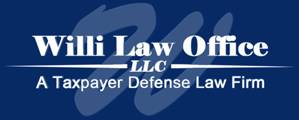Understanding the tax responsibilities that come with starting a business venture can save you time, money, and aggravation, and help set you up for success. Here are six tips for new business owners.
Choose a Business Structure
The form of business determines which income tax return a business taxpayer needs to file. The most common business structures are:
- Sole proprietorship: An unincorporated business owned by an individual. There’s no distinction between the taxpayer and their business.
- Partnership: An unincorporated business with ownership shared between two or more people.
- Corporation: Also known as a C corporation. It’s a separate entity owned by shareholders.
- S Corporation: A corporation that elects to pass corporate income, losses, deductions and credits through to the shareholders.
- Limited Liability Company: A business structure allowed by state statute.
Choose a Tax Year
A tax year is an annual accounting period for keeping records and reporting income and expenses. A new business owner must choose either:
- Calendar year: 12 consecutive months beginning January 1 and ending December 31.
- Fiscal year: 12 consecutive months ending on the last day of any month except December.
Apply For an Employer Identification Number (EIN)
An EIN is also called a federal tax identification number. It’s used to identify a business. Most businesses need one of these numbers. It’s important for a business with an EIN to keep the business mailing address, location and responsible party up to date. IRS regulations require EIN holders to report changes in the responsible party within 60 days.
Have All Employees Complete Employment Eligibility and Withholding Forms
- Form I-9, Employment Eligibility Verification U.S. Citizenship and Immigration Services
- Form W-4, Employee’s Withholding Allowance Certificate
File Federal Tax Forms and Pay Federal Business Taxes
The form of business determines what federal taxes must be paid and how to pay them. The following are the five general types of federal business taxes:
- Income Tax – all businesses except partnerships must file an annual income tax return. Partnerships file an information return. The form you use depends on how your business is organized. Because the federal income tax is a pay-as-you-go tax, you must pay the tax as you earn or receive income during the year. If you do not pay your tax through withholding, or do not pay enough tax via withholding, you may have to pay estimated tax.
- Estimated tax – generally, you must pay taxes on income, including self-employment tax, by making regular payments of estimated tax during the year.
- Self-Employment Tax – is social security and Medicare tax primarily for self-employed individuals. There are special rules and exceptions for aliens, fishing crew members, notary public, state or local government employees, foreign government or international organization employees.
- Employment Taxes – when you have employees, you as the employer have certain employment tax responsibilities that you must pay and forms you must file. Employment taxes include the following:
- Social security and Medicare taxes
- Federal income tax withholding
- Federal unemployment (FUTA) tax
- Excise Tax – you may have to file additional tax forms and pay excise taxes related to environmental taxes, wagering taxes, communications and air transportation taxes, fuel taxes, the first retail sale of heavy trucks, trailers, and tractors, and manufacturers taxes on the sale or use of a variety of different articles.
The IRS web site (IRS.gov) has additional resources and answers to help you through the process of starting a new business.
File State and Local Tax Forms and Pay State and Local Business Taxes
Prospective business owners should visit their state’s website for info about state requirements. For Ohio business owners, the state administers the Ohio Business Gateway, a one-stop online shop for business tax filing is designed to streamline the relationship between commerce and government. It provides tools that make it easier for any business owner to file and pay sales tax, commercial activity tax, employer withholding, unemployment compensation contributions, workers’ compensation premiums and municipal income taxes for nearly 500 cities and villages.
Willi Law Office, LLC has been providing personalized legal services to individuals and businesses in Westerville and Central Ohio for over 20 years.

